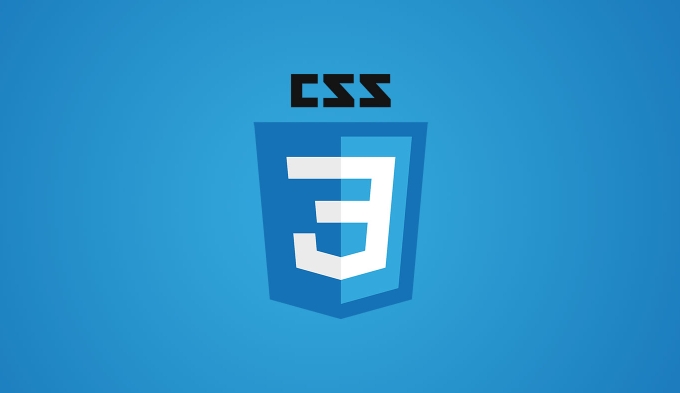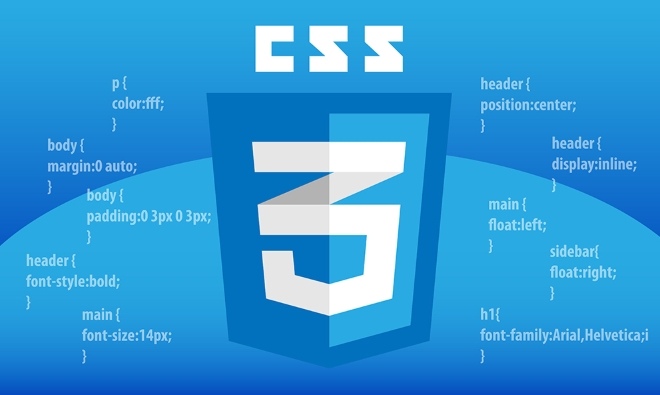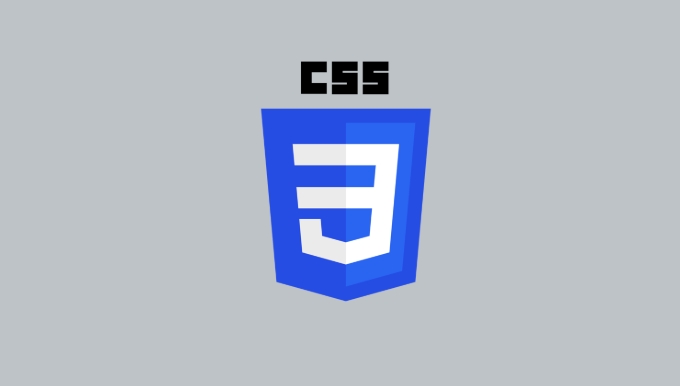The key to implementing dark mode switching of web pages lies in HTML structure, CSS style separation, JavaScript control class names and persistent storage. First, add button elements: <button id="darkModeToggle">Switch dark mode</button>; second, define the body default style and .dark-mode class style in CSS; then, use JavaScript to listen to the button click event and switch the class name: document.body.classList.toggle('dark-mode'); then, use localStorage to save user preferences, read the status when the page is loaded and restore the corresponding mode; finally, you can automatically detect system preferences and prioritize user storage settings. Through these steps, you can achieve a complete dark mode switching function.

The dark mode switching function is now almost standard for web pages, and it is actually not complicated to implement. You can do it by using CSS with a little HTML and JavaScript. The key is to understand how to control topic switching and persist user preferences.

Basic structure: HTML style separation
Start with the structure. The core is to add a switch button to the page and define different styles for the two states "light" and "dark". Put a button in HTML:
<button id="darkModeToggle">Switch dark mode</button>
Then use class names in CSS to distinguish light and dark styles, such as changing the background and text color when adding .dark-mode class to body :

body {
background-color: #fff;
color: #333;
}
body.dark-mode {
background-color: #121212;
color: #e6e6e6;
}In this way, as long as you switch the class name through JS, you can achieve the basic switching effect.
Switch logic: Use JavaScript to control class names
The next step is to make the button really move. The task of JavaScript is very simple: listen for click events and switch the class name on the body.

document.getElementById('darkModeToggle').addEventListener('click', function () {
document.body.classList.toggle('dark-mode');
}); This code means that every time you click a button, you add or remove the dark-mode class on the body. Combined with the CSS written above, visual switching is achieved.
Remember user selection: Use localStorage to save status
The user has clicked on dark mode, and the refresh has changed back? This requires saving users' preferences. You can use localStorage provided by the browser to remember the current status.
Change the JS part:
const toggleButton = document.getElementById('darkModeToggle');
// Check the storage status when the page is loading if (localStorage.getItem('darkMode') === 'enabled') {
document.body.classList.add('dark-mode');
}
toggleButton.addEventListener('click', function () {
document.body.classList.toggle('dark-mode');
// If there is currently a dark-mode class, the status is saved if (document.body.classList.contains('dark-mode')) {
localStorage.setItem('darkMode', 'enabled');
} else {
localStorage.setItem('darkMode', 'disabled');
}
});This way, even if the page is refreshed, the user's preferences can be restored according to the local storage.
Optional optimization: Automatic detection of system preferences
If you want to follow the system settings by default, you can add a paragraph to judge:
if (
window.matchMedia &&
window.matchMedia('(prefers-color-scheme: dark)').matches
) {
document.body.classList.add('dark-mode');
}However, it should be noted that if the user has manually set preferences (localStorage exists), the user's choice should be used first, rather than the system default.
Basically that's it. The entire process is clear and the implementation is simple, but the state synchronization and storage mechanism must be handled in details. You can further encapsulate or use a framework to implement it according to your project's needs.
The above is the detailed content of How to create a dark mode toggle with CSS. For more information, please follow other related articles on the PHP Chinese website!

Hot AI Tools

Undress AI Tool
Undress images for free

Undresser.AI Undress
AI-powered app for creating realistic nude photos

AI Clothes Remover
Online AI tool for removing clothes from photos.

Clothoff.io
AI clothes remover

Video Face Swap
Swap faces in any video effortlessly with our completely free AI face swap tool!

Hot Article

Hot Tools

Notepad++7.3.1
Easy-to-use and free code editor

SublimeText3 Chinese version
Chinese version, very easy to use

Zend Studio 13.0.1
Powerful PHP integrated development environment

Dreamweaver CS6
Visual web development tools

SublimeText3 Mac version
God-level code editing software (SublimeText3)

Hot Topics
 How to use PHP to build social sharing functions PHP sharing interface integration practice
Jul 25, 2025 pm 08:51 PM
How to use PHP to build social sharing functions PHP sharing interface integration practice
Jul 25, 2025 pm 08:51 PM
The core method of building social sharing functions in PHP is to dynamically generate sharing links that meet the requirements of each platform. 1. First get the current page or specified URL and article information; 2. Use urlencode to encode the parameters; 3. Splice and generate sharing links according to the protocols of each platform; 4. Display links on the front end for users to click and share; 5. Dynamically generate OG tags on the page to optimize sharing content display; 6. Be sure to escape user input to prevent XSS attacks. This method does not require complex authentication, has low maintenance costs, and is suitable for most content sharing needs.
 PHP creates a blog comment system to monetize PHP comment review and anti-brush strategy
Jul 25, 2025 pm 08:27 PM
PHP creates a blog comment system to monetize PHP comment review and anti-brush strategy
Jul 25, 2025 pm 08:27 PM
1. Maximizing the commercial value of the comment system requires combining native advertising precise delivery, user paid value-added services (such as uploading pictures, top-up comments), influence incentive mechanism based on comment quality, and compliance anonymous data insight monetization; 2. The audit strategy should adopt a combination of pre-audit dynamic keyword filtering and user reporting mechanisms, supplemented by comment quality rating to achieve content hierarchical exposure; 3. Anti-brushing requires the construction of multi-layer defense: reCAPTCHAv3 sensorless verification, Honeypot honeypot field recognition robot, IP and timestamp frequency limit prevents watering, and content pattern recognition marks suspicious comments, and continuously iterate to deal with attacks.
 How to build a PHP Nginx environment with MacOS to configure the combination of Nginx and PHP services
Jul 25, 2025 pm 08:24 PM
How to build a PHP Nginx environment with MacOS to configure the combination of Nginx and PHP services
Jul 25, 2025 pm 08:24 PM
The core role of Homebrew in the construction of Mac environment is to simplify software installation and management. 1. Homebrew automatically handles dependencies and encapsulates complex compilation and installation processes into simple commands; 2. Provides a unified software package ecosystem to ensure the standardization of software installation location and configuration; 3. Integrates service management functions, and can easily start and stop services through brewservices; 4. Convenient software upgrade and maintenance, and improves system security and functionality.
 What are common CSS browser inconsistencies?
Jul 26, 2025 am 07:04 AM
What are common CSS browser inconsistencies?
Jul 26, 2025 am 07:04 AM
Different browsers have differences in CSS parsing, resulting in inconsistent display effects, mainly including the default style difference, box model calculation method, Flexbox and Grid layout support level, and inconsistent behavior of certain CSS attributes. 1. The default style processing is inconsistent. The solution is to use CSSReset or Normalize.css to unify the initial style; 2. The box model calculation method of the old version of IE is different. It is recommended to use box-sizing:border-box in a unified manner; 3. Flexbox and Grid perform differently in edge cases or in old versions. More tests and use Autoprefixer; 4. Some CSS attribute behaviors are inconsistent. CanIuse must be consulted and downgraded.
 Describe the `vertical-align` property and its typical use cases
Jul 26, 2025 am 07:35 AM
Describe the `vertical-align` property and its typical use cases
Jul 26, 2025 am 07:35 AM
Thevertical-alignpropertyinCSSalignsinlineortable-cellelementsvertically.1.Itadjustselementslikeimagesorforminputswithintextlinesusingvalueslikebaseline,middle,super,andsub.2.Intablecells,itcontrolscontentalignmentwithtop,middle,orbottomvalues,oftenu
 What is the accent-color property?
Jul 26, 2025 am 09:25 AM
What is the accent-color property?
Jul 26, 2025 am 09:25 AM
accent-color is an attribute used in CSS to customize the highlight colors of form elements such as checkboxes, radio buttons and sliders; 1. It directly changes the default color of the selected state of the form control, such as changing the blue check mark of the checkbox to red; 2. Supported elements include input boxes of type="checkbox", type="radio" and type="range"; 3. Using accent-color can avoid complex custom styles and extra DOM structures, and maintain native accessibility; 4. It is generally supported by modern browsers, and old browsers need to be downgraded; 5. Set accent-col
 CSS transitions tutorial
Jul 26, 2025 am 09:30 AM
CSS transitions tutorial
Jul 26, 2025 am 09:30 AM
CSStransitionsenablesmoothpropertychangeswithminimalcode,idealforhovereffectsandinteractivefeedback.1.Usethesyntaxtransition:propertydurationtiming-functiondelay;todefinetransitions,liketransition:background-color0.3sease0.1s;.2.Specifytransition-pro
 How to change text color in CSS?
Jul 27, 2025 am 04:25 AM
How to change text color in CSS?
Jul 27, 2025 am 04:25 AM
To change the text color in CSS, you need to use the color attribute; 1. Use the color attribute to set the text foreground color, supporting color names (such as red), hexadecimal codes (such as #ff0000), RGB values (such as rgb(255,0,0)), HSL values (such as hsl(0,100%,50%)), and RGBA or HSLA with transparency (such as rgba(255,0,0,0.5)); 2. You can apply colors to any element containing text, such as h1 to h6 titles, paragraph p, link a (note the color settings of different states of a:link, a:visited, a:hover, a:active), buttons, div, span, etc.; 3. Most






